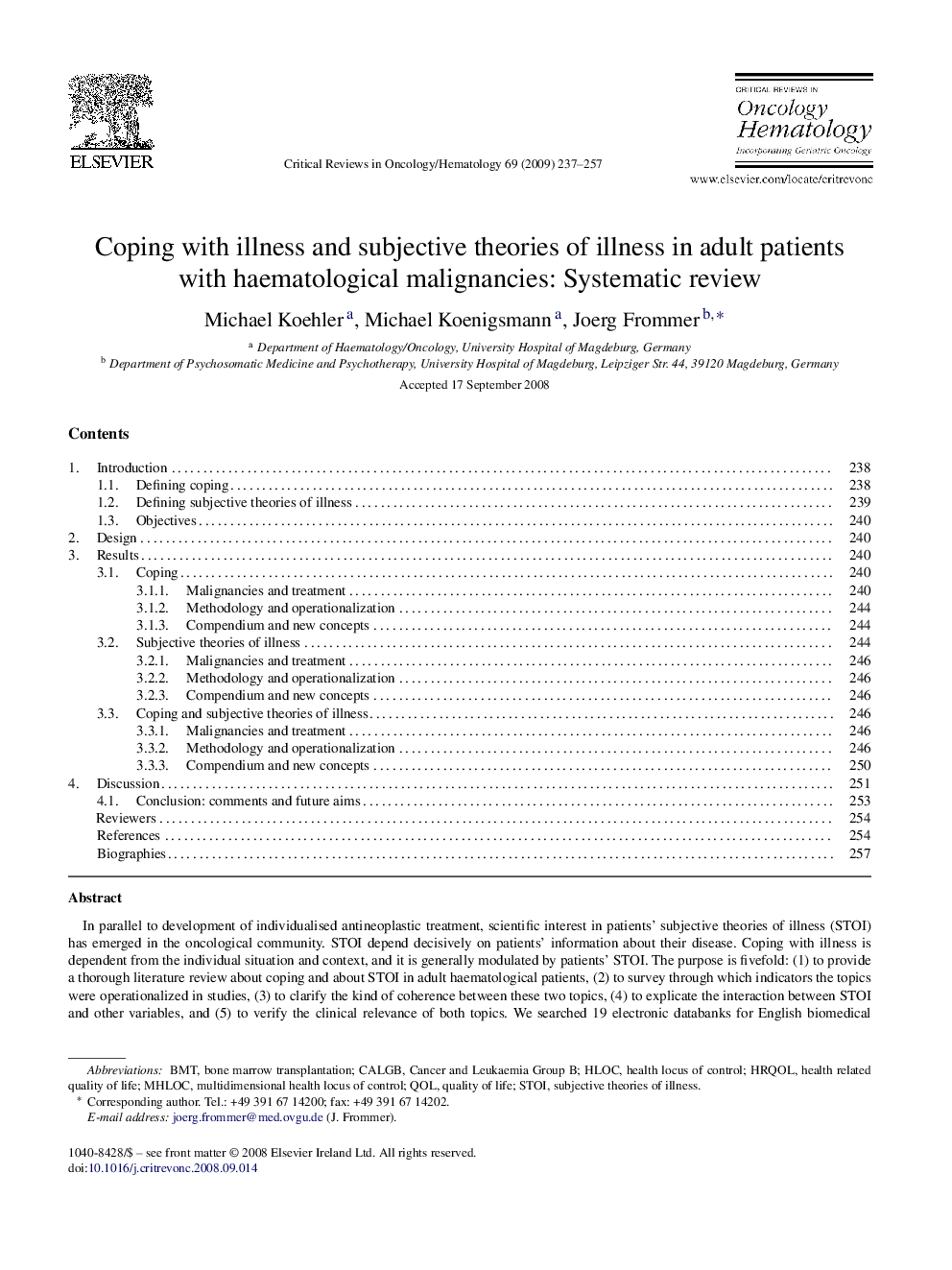| Article ID | Journal | Published Year | Pages | File Type |
|---|---|---|---|---|
| 3329710 | Critical Reviews in Oncology/Hematology | 2009 | 21 Pages |
In parallel to development of individualised antineoplastic treatment, scientific interest in patients’ subjective theories of illness (STOI) has emerged in the oncological community. STOI depend decisively on patients’ information about their disease. Coping with illness is dependent from the individual situation and context, and it is generally modulated by patients’ STOI. The purpose is fivefold: (1) to provide a thorough literature review about coping and about STOI in adult haematological patients, (2) to survey through which indicators the topics were operationalized in studies, (3) to clarify the kind of coherence between these two topics, (4) to explicate the interaction between STOI and other variables, and (5) to verify the clinical relevance of both topics. We searched 19 electronic databanks for English biomedical literature manuscripts (1995–2008) on this subject. Twenty-six studies met our criteria and varied in haematological entity, treatment concept, sample size and methodological design. We conclude that a subjective-individual regulation of patient’s mental stability during a cytotoxic chemotherapy is important. Successful coping strategies develop not only based on objective, but also subjective evaluation mechanisms. We deduce consequences for doctor–patient communication and psychosocial care in haematology. The newly developed process model of subjective regulation in cancer patients, in general, views the oncological treatment process as a procedural mental evaluation.
